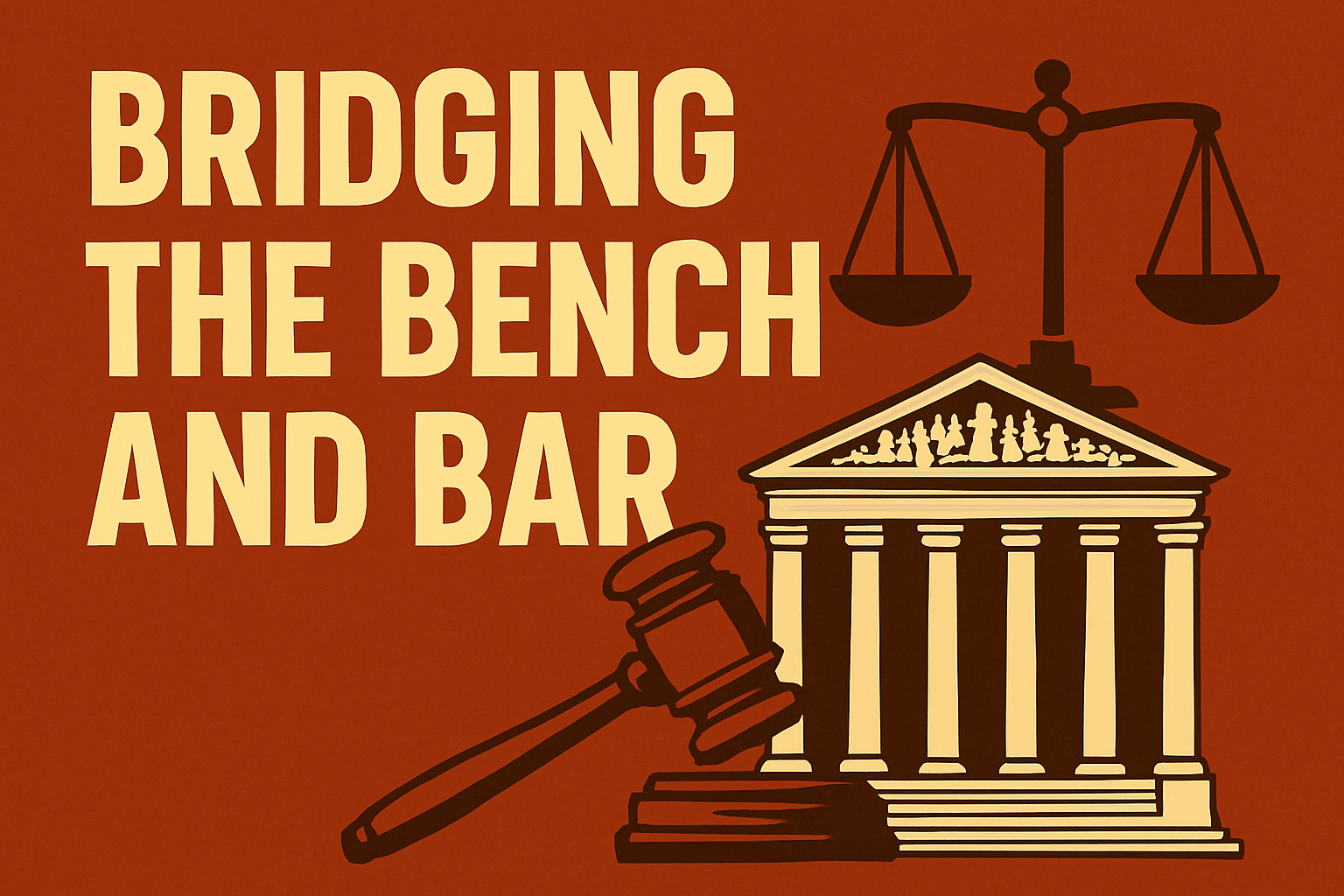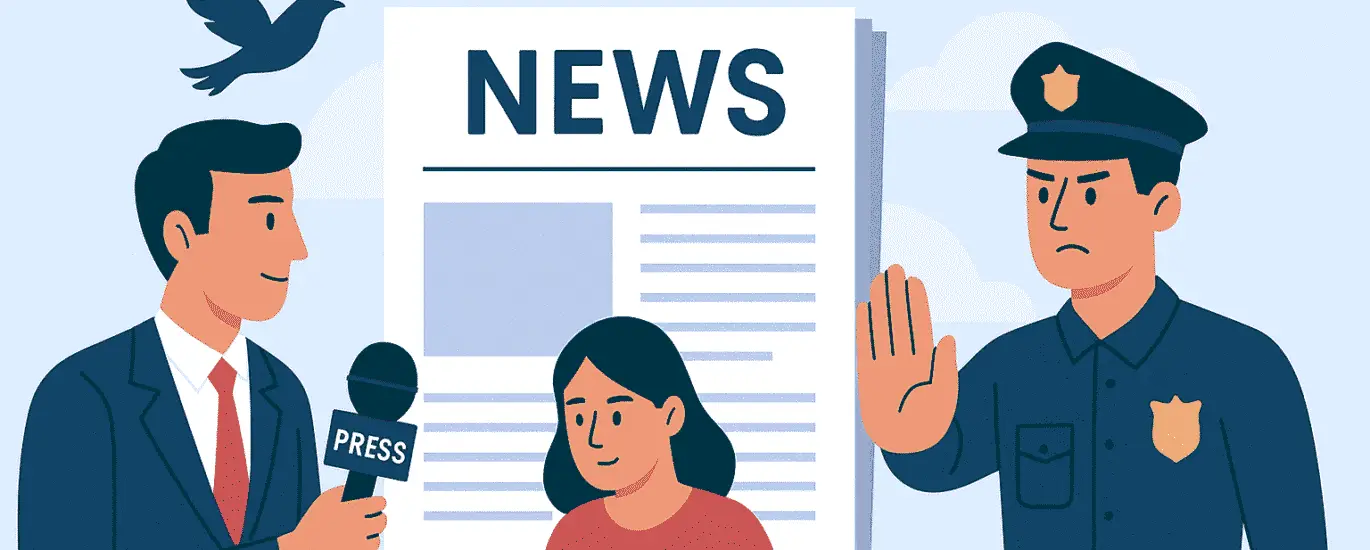



“Freedom of press is essential to political liberty.”
— By the American Press Commission
History demonstrates the value of free speech. Adolf Hitler’s rule in Nazi Germany in the 1930s can serve as an illustration. Freedom of Speech was implied to be unavailable. Because the Nazi regime controlled the press, no one was allowed to criticize or even bring up the horrors of the concentration camps.
Given its ability to alter the course of events in a political society, freedom of speech and expression is a hotly debated matter. Since speech is a tool for human development, some people are concerned about the idea that speech determines the course of a society’s development.
As the question arises, what is the impact of freedom of speech and its importance and also does it have any restrictions?
Questioning the system, asking questions as to why? Expressing views were the core essence of Indian education. Regarding religion, Hinduism allows for skepticism and uncertainty.The idea of “Parrhesia,” or free and honest communication, dates back to ancient Greece. The significance of freedom of expression was also explained by their intellectuals, such as Milton and Eramus.
As the world has evolved and with its new found technology receiving information has become easy.During the renaissance period the first printing press was invented. Prior to it, knowledge and education were considered luxuries. However, informational columns became a component of human society when the equipment to print news articles was invented. The press became a significant information source. Freedom of press is under freedom of speech. Freedom of press became a hot topic in 1948 at UN. Hence, the freedom of press under universal declaration of human right.
As we know the fourth pillar of a democratic society is press.
Nazi Germany was able to control the populace with their anti-Semitic ideology, as we previously discussed. When the Nazis began incarcerating Jews in concentration camps, the public turned away because they had spread false information and incited fear about them. Narrative is an important part of society it manipulate the minds of individuals. The press needs to be objective and present all sides of the story. The opinion has also been voiced by the Indian Press Commission. “Democracy cannot flourish under the watchful eye of its legislature,” it states.
In 1975 during era of emergency by then Prime minister Mrs. Indira Gandhi. There were pre-censorship limitations. For expressing their candid opinions about the emergency, journalists were arrested. One crucial component of freedom of speech is freedom of the press. It provides the people the power to make their own decisions. It restores people’s power.
The public has the ability to vote, and they do so based on how they perceive their leader. Thus, a compelling story had to be developed. Narration is a tool that the press can use to enhance or detract from their reputation.
Freedom of speech under Article 19(1)(a) provides for freedom of speech. The right to express views and opinions through various mediums including speech, writing, printing, pictures and other forms of communication.
In the case of Brij Bhushan v. State of Delhi In accordance with section 7 of the East Punjab Safety Act, 1949, the chief commissioner of Delhi issued an order against the organizer, who was the printer, publisher, and editor of an English weekly published in Delhi. The order directed the organizers to submit all news and opinions about Pakistan, including photographs and cartoons, for scrutiny in duplicate before publication until further orders. The orders weren’t based on official sources of news agencies. Court held that it is unconstitutional as pre-censorship of a journal is against the provision of article 19 of the constitution.
Freedom of speech has its restrictions given under Article 19(2). It provides that the state can impose reasonable restrictions in the interest of the sovereignty and integrity of India, the security of the state, friendly relations with foreign States, public order, decency or morality or in relation to contempt of court, defamation or incitement.
Hence, the press also has restrictions while expressing their views. As the debate started whether there should be restriction of content watched by different age of people. In the case of Ajay Goswami v. Union of India Petitioner filed the petition to protect young children from being exposed to sexually exploitative material. And also draw a line between art and obscenity. Court held that there should be council to amend the provision of the act.
In another case of Express Newspaper v. Union of India The validity of the working Journalists Act, 1955 was challenged because the act affected the press employees.The court held that the press is not immune from general laws or tax or laws of industrial relations.
The restrictions were provided in the constitution so there would be balance in the society as everyone is allowed to express themselves without harming the public at large. If any restriction does not fall under any situation provided under Article 19(2) then such restrictions are void and unconstitutional. It was held in the case of Romesh Thapper v. State of Madras, the government of madras banned circulation of newspaper articles under the Maintenance of Public Order Act, 1949.
Press has the freedom to share the news with the public. Would fixing the number of pages in a newspaper be a reasonable restriction. It was held to be unconstitutional in the case of Bennet Coleman and Co. V. Union of India Imposing a limitation on the number of pages would stress the reporters to prioritise one news from another which would kill the purpose of news itself. There would be lack of knowledge or even delay.
Press also includes films as they are also part of the media. They also affect the perspective of society, changes its views. Advertisements and films are the mirror of society. They also help in telling the harsh truth of society with entertainment.
So does it need to be restricted under the provision of Article 19(2). In the case of K.A.Abbas v. Union of India The case was filed against the rule of dividing the films in two categories : ‘U’ films unrestricted exhibition and ‘A’ for adults only. The court held that pre-censorship is lawful as cinema affects people in a more realistic way than any art form. Hence, it needs to be segregated from adult and age appropriate films. As young minds cannot comprehend such scenes and would leave them disturbed and traumatized.
However, the scenes of nudity are not meant for it to be obscene. In the case of Bobby Art International v. Om Pal Singh Hoon The case is also known as “bandit queen case” the film has taken the story of a real life bandit queen and how she became a bandit queen. The struggle of a girl child in a village who regularly harassed, later married to an old man when she was very young. She was raped and beaten by him. And the film showed the atrocities of upper class men. She joined a gang of dacoits. The film consists of a scene where she was paraded naked throughout the village.
The film was given the ‘A’ certificate.
The appeal went to SC and it held the certificate is valid. However the film must be judged by its context. Named scenes not necessarily arose in mind but rather with the context of the film creates sympathy for the women.
In recent years as the world of social media has grown the media has changed too much. Media has changed their ways of giving out information too.
People are becoming sensitive towards the media and media persons but the judiciary has protected their freedom of speech.
In the case of Arnab Ranjan Goswami v. Union of India & Ors. (2020). SC held that journalistic freedom under Article 19(1)(a) must be protected.
In People’s Union for Civil Liberties v. Union of India (2020 – Pegasus Spyware Case) The Court recognized journalists’ right to privacy and underlined that surveillance cannot jeopardize press freedom.
Sajeev v. State of Kerala
The court noted that anti-terror laws cannot be used to suppress dissent or investigative reporting and must be carefully considered before being applied to journalists.
Freedom of speech is an essential right for human development. With time humans evolve so does their idea of freedom. As technology developed the idea of expressing developed too. Now freedom of speech and expression isn’t just verbal, it is now art, poems, films, media, satire etc. They became a way of expressing a person’s true view so that it can cover a larger population.
Freedom of media is necessary for society’s well-being. The reason freedom of press is considered so important is that the media not just share the information but also provide help to voters to choose their leader which will shape the country. Hence, when governments and other authoritative figures try to intervene with the freedom of press it directly endangers democracy.
https://www.thelegalyoungster.com/legal-internship/
https://www.thelegalyoungster.com/category/daily-news/